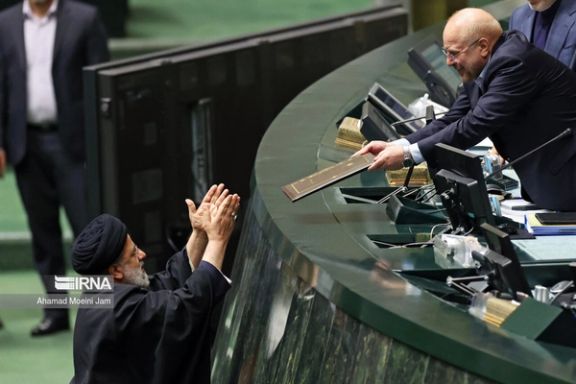Iranian President Presents New Budget Amid Economic Crisis

Iranian President Ebrahim Raisi presented the proposed budget for the upcoming year to parliament on Tuesday for a nation amidst an economic crisis.

Iranian President Ebrahim Raisi presented the proposed budget for the upcoming year to parliament on Tuesday for a nation amidst an economic crisis.
Despite his claims of a four percent economic growth, observers note a lack of visible signs of development, coupled with high inflation and the depreciation of the national currency.
Defending the budget proposal, President Raisi said efforts were made to "realistically depict both revenues and expenditures." Addressing the parliament, he asserted that his government had experienced a four percent economic growth since taking office, following a decade of economic stagnation. However, his assertions are currently not subject to independent verification due to constraints on government agencies and a lack of transparent quarterly statistics.
Raisi acknowledged a budget deficit of approximately ten billion dollars but claimed that it had been compensated through income generation. Despite facing economic challenges, he expressed the government's commitment to avoiding a budget deficit in the current year.
There are no visible signs of economic development in Iran with international sanctions for the country's nuclear program, its brutal suppression of protests and its support of Russia's war on Ukraine significantly restricting trade, foreign investment, and access to financial markets.
High inflation rates further compound the economic woes, eroding the purchasing power of the local currency. This economic scenario poses challenges for businesses and individuals, impacting living standards and contributing to economic stagnation.
The proposed budget, presented to the parliament, revealed some key details, including tax revenues expected to be twice the government's oil revenues.
Last month, the Entekhab news website in Tehran reported that according to the budget bill, even the monthly incomes of 100 to 140 million rials ($200 to $280) will be subject to a 10 percent tax. Jahan-e-Sanat daily also warned that the Iranian government has counted on “inflation tax” to fill the next year’s budget. The Iranian calendar and fiscal year begins on March 21, 2024.